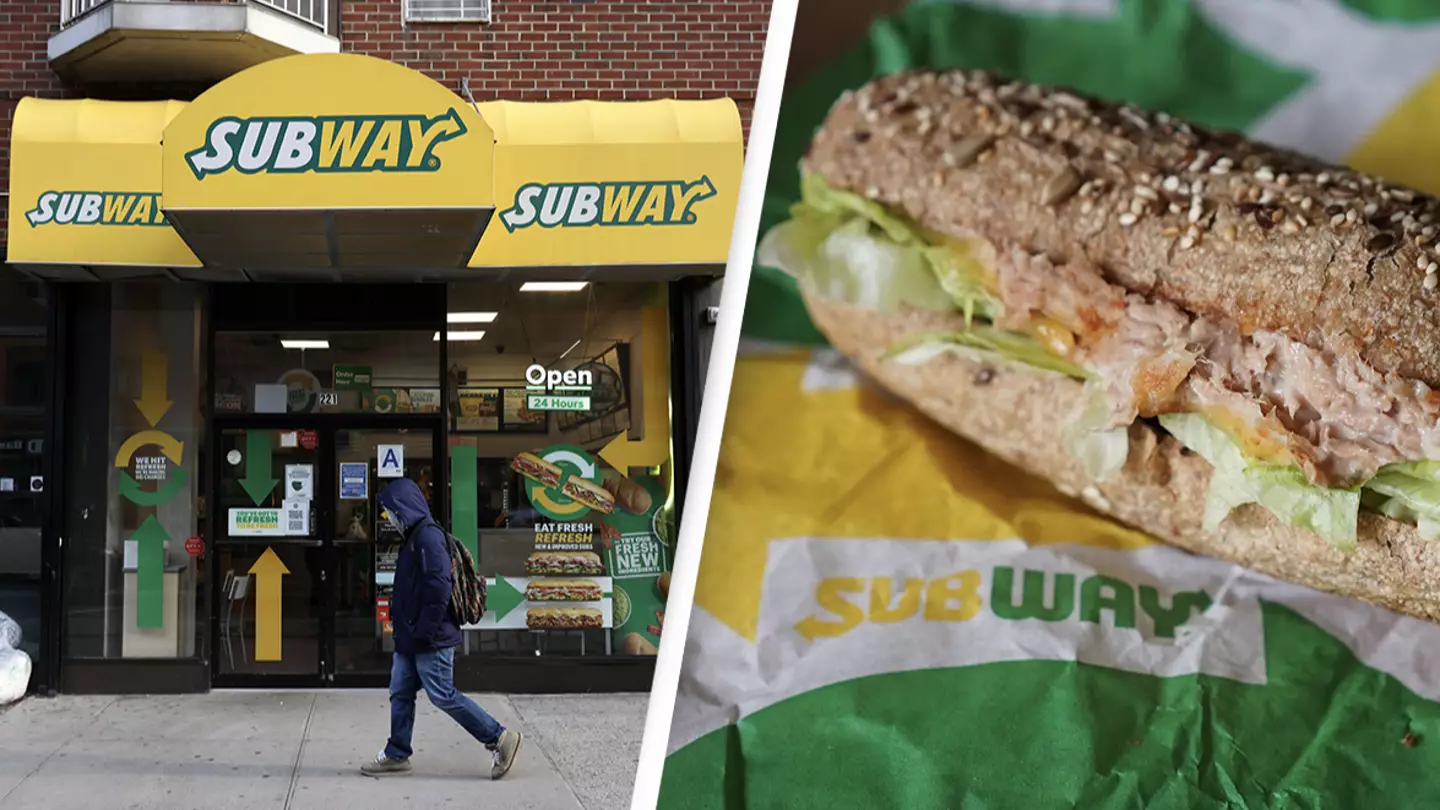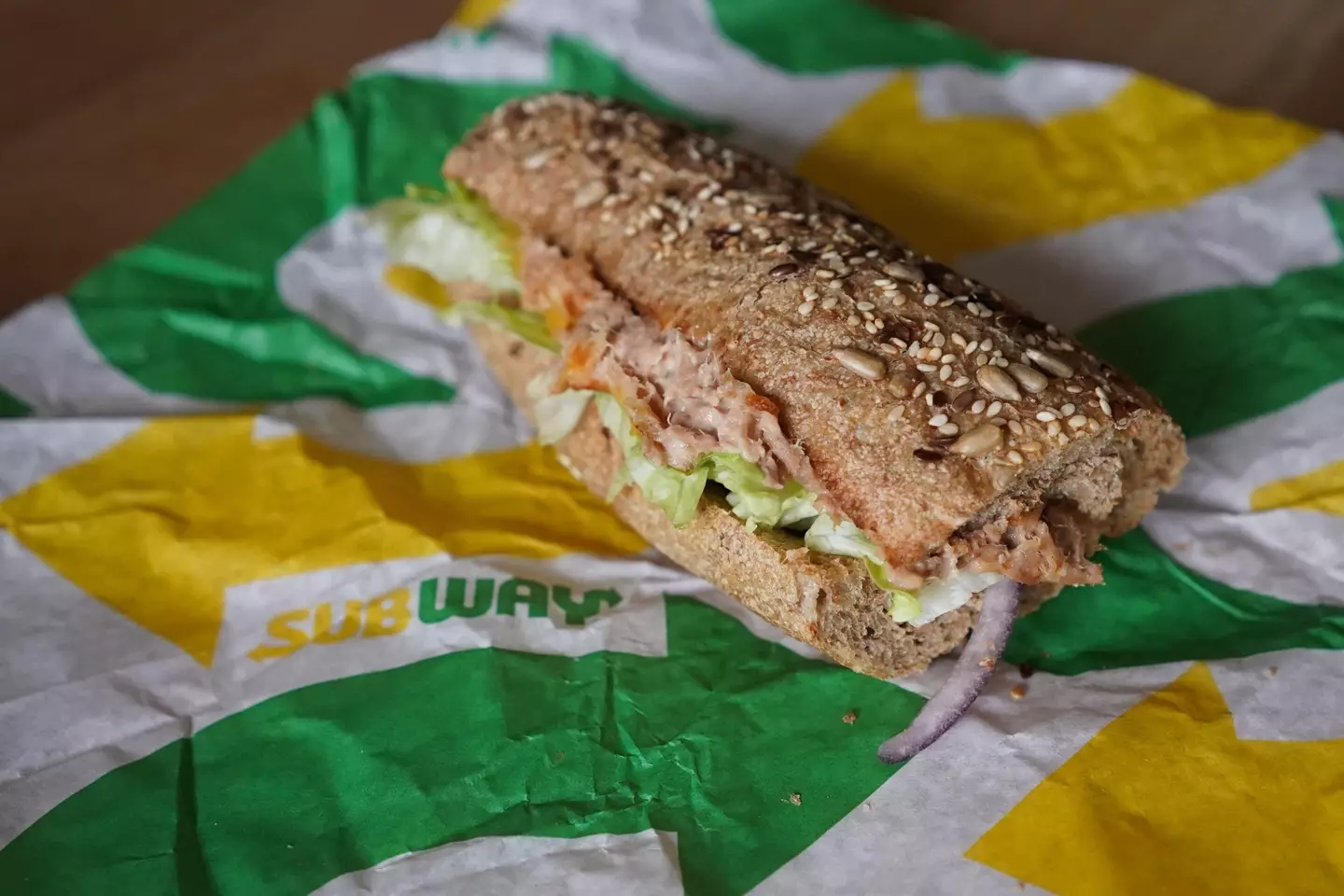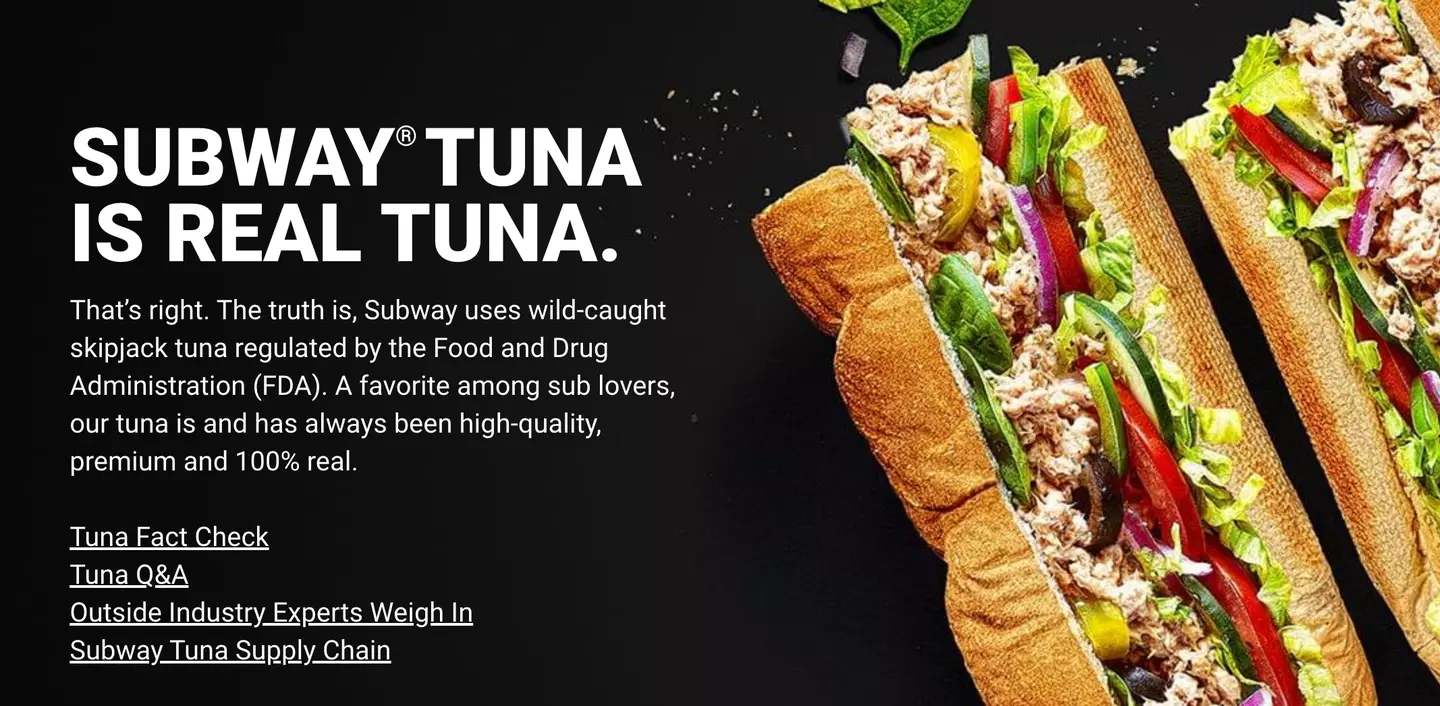
A judge has refused to dismiss a part of an amended lawsuit against Subway over its tuna sandwiches.
The Subway tuna debacle seemed to come to a close at the end of last year when US District Court Judge Jon S. Tigar dismissed the case brought forward by two residents of Alameda County in the Bay Area on the basis of the required legal standard not having been met by the plaintiffs.
However, since the lawsuit has been amended, Judge Tigar determined earlier this month that the class action suit does have grounds to move forward.

Advert
The whole fishy saga first began in 2017, when Nilima Amin and Karen Dhanowa filed a lawsuit against the popular sandwich chain after lab analysis of a number of its tuna sandwiches failed to identify any fish DNA.
The plaintiffs claimed Subway had committed fraud, intentional misrepresentation and unjust enrichment, among other California state laws, by tricking them 'into buying premium priced food dishes based on the representation that the tuna products contained only tuna and no other fish species, animal products or miscellaneous ingredients'.
While their case appeared strong – it was found that 19 out of 20 samples did not contain any 'detectable tuna DNA sequences whatsoever' – it was ruled by Judge Tigar the plaintiffs did not meet the legal standards to be able to sue Subway as Dhanowa had no proof she had purchased the items or that she 'suffered any harm'.
He also dismissed the claim that customers had been deceived by the company for selling sandwiches that are not 100 percent tuna, as any reasonable customer would know there are other ingredients in the sandwich, such as bread and mayonnaise.

Since then, Amin and Dhanowa have amended the lawsuit and filed it for the third time in the US District Court for the Northern District of California.
While the judge dismissed their earlier claims, last week Judge Tigar declined to dismiss the plaintiff's allegation that Subway's tuna items contain 'other fish species, animal species or miscellaneous products'.
He said: "Although it is possible that Subway’s explanations are the correct ones, it is also possible that these allegations refer to ingredients that a reasonable consumer would not reasonably expect to find in a tuna product.
"Moreover, even if the Court accepted Subway’s statement that all non-tuna DNA must be caused by cross-contact with other Subway ingredients, it still would not dismiss the complaint on this basis. Whether, and to what extent, a reasonable consumer expects cross-contact between various Subway ingredients is a question of fact."
Despite the judge's decision, Subway's attorney, Mark C Goodman, told the Washington Post the plaintiff's claims 'are not true'.
"While we obviously understand the Court is required to accept the plaintiff’s claims as true at the pleadings stage of the case, the fact is plaintiff’s claims are not true. Subway tuna is tuna."
Subway has argued the plaintiff's case is flawed because the laboratory's methodologies were not as detailed as they should've been.
It's also claimed the fish has to be 'fresh' or 'living tissue' – opposed to after it's been cooked at a high heat – in order for tuna DNA to be detected properly.

However, the New York Times and Inside Edition also tested samples and found the same results as the plaintiffs – 'no amplifiable tuna DNA [...] present', though this could have been down to the sample being overly processed, meaning testing equipment couldn't detect any species of tuna.
Subway refuted these claims, saying it tests its tuna regularly and even setting up a page to defend its products.
It states: "Applied Food Technologies is one of the only labs in the country with the ability to test broken-down fish DNA, which makes it more accurate in testing processed tuna.
"AFT conducted more than 50 individual tests on 150 pounds of Subway’s tuna for Inside Edition and confirmed yellowfin and/or skipjack tuna in every sample."
Judge Tigar concluded: "The Court finds that the complaint ‘as a whole’ is sufficiently specific about what is false and why.
"It states that the ‘tuna’ description is false either because there is no tuna in the products and/or because there are ingredients that a reasonable person would not expect to find in an item described as ‘tuna.’ That is enough."
Goodman revealed plans to 'vindicate' Subway 'once the Court is able to consider the evidence'.
The attorney resolved: "We are very confident that judgment will be entered for Subway on each of the plaintiff’s claims."
Amin and Dhanowa have 21 days to file another amended complaint.
UNILAD has contacted Subway for comment.
If you have a story you want to tell, send it to UNILAD via [email protected]
Topics: Subway, Food and Drink, World News